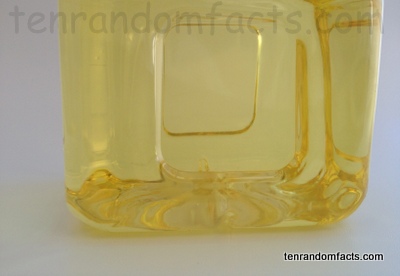Light in colour, light in taste…. canola oil.
- Canola oil is a version of oil used in cooking, that is extracted from the seeds of specifically bred plants of the Brassica genus – Brassica juncea (leaf mustard or mustard greens), Brassica napus (rapeseed), and Brassica rapa (turnip rape or field mustard).
- ‘Canola oil’ is also known as ‘canola’ and was named by the Western Canadian Oilseed Crushers Association, originating from the words ‘Canada’ and ‘oil’.
- Canola oil originated in Canada, in the 1970s, and the plants were developed by Canada’s University of Manitoba and the government department, Agriculture and Agri-Food Canada.
- In 2014, the European Union produced the most metric tons of canola or rapeseed oilseed in the world, with a quantity of more than 21 million tons, while Canada produced almost 18 million, out of a total worldwide production of more than 71 million tons.
- Canola oil is extracted by pressing and heating the oilseeds, after which the meal of the seeds is separated from the oil; and the meal is frequently used to feed animals like pigs, cattle, fish and poultry and can also be used as a fertiliser.

- Canola oil is commonly used in cooking dues to its high heat tolerance and low level of saturated fat, and it is often used in baking; applied to the surface of pans to prevent food sticking; and used for frying food.
- Canola oilseeds contain approximately 44% oil, with 23 kilograms (51 pounds) of seed, creating approximately 10 litres (2.6 gallons) of oil.
- Canola can only be classified as such if it has erucic acid quantities of less than 2% present in the oil, while the glucosinolates that exist in the dry meal must be less than 30 micromoles for each gram.
- Canola oil is commonly used as the main ingredient in shortening, margarine and salad dressings, and is also found in plastics, machinery lubrication, cosmetics and ink for the printing industry, among others.
- Despite theories that canola oil is not healthy, the product is typically high in vitamin E and vitamin K, and it is believed to be one of the healthier cooking oil options.
Bibliography:
Canola, 2015, Wikipedia, http://en.wikipedia.org/wiki/Canola
What is Canola Oil?, 2015, Canola Info, http://www.canolainfo.org/canola/
What is Canola?, 2014, Canola Council, http://www.canolacouncil.org/oil-and-meal/what-is-canola/






